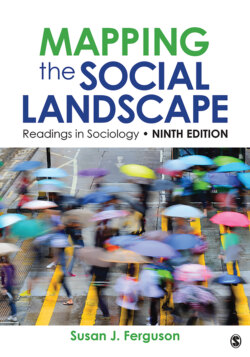Читать книгу Mapping the Social Landscape - Группа авторов - Страница 40
На сайте Литреса книга снята с продажи.
The Kinds of Questions We Can Ask
ОглавлениеAll attempts to create knowledge are responses to questions, and knowledge must be created in a way that suits the question. For example, if you asked, “How much does this book weigh?” the proper way to get an answer is to weigh it. How many words does it contain? Count them. Will it fly like a boomerang? Give it the right kind of throw and observe the result. These are empirical questions, which means that they are answerable by measuring, counting, or looking to see what happens.
But suppose you asked, “Is the cover of this book beautiful?” What then? You could ask ten artists for their opinions. What if seven said it was ugly, two were ambivalent, and one thought it was beautiful? In this case no measuring stick will settle the matter, because you have asked an aesthetic question—a question about what is subjectively pleasing to the senses—and aesthetic questions are not answerable with data. We can try to say why something strikes us as ugly or beautiful, tasteful or crass, but no evidence or logic will prove us right and others wrong.
Here is another kind of question: Was it worthwhile for me to write this [article], considering that I might have been doing other useful things with my time? Again, this is not an empirical question, since there is no way to get an answer by measuring, counting, or observing. It is a moral question, since it calls for a judgment about what is right to do. I could say why it seemed to me a good thing to write this [article], but my reasons would be based on moral precepts and on my sense of how the future is likely to unfold. There is no data I can show, no standard analysis, to prove that my answer is right. All I can do is to offer reasonable arguments.
There are also questions of interpretation, the most simple of which is “What does this thing mean?” Such questions often arise when we confront works of art. We might look at a painting or read a novel and wonder what the writer or artist wanted us to understand. But any fact, object, gesture, phrase, or behavior—anything that has meaning—can raise a question of interpretation.
Sometimes we can get an answer by asking for clarification. Perhaps the writer or artist can tell us what s/he meant (although writers and artists can’t always fully explain what their work means). Or perhaps there is expert opinion available to help us make sense of things. Other times there might be so much ambiguity that no clear interpretation can be nailed down. All anyone can do then is to give reasons to support the plausibility of a particular interpretation.
You can perhaps see now that research is better suited to answering some questions than others. It is a good way to answer empirical questions. It can also be useful for answering interpretive questions, because we can sometimes dig up evidence that supports the plausibility of an interpretation. And although it is wise to search for ideas and information to help guide our moral and aesthetic judgments, research will not tell us which judgments are correct.
It is good to be mindful of the kind of question we are facing. Sometimes we get into fruitless debates because we are not clear about this. There is no point, for example, in trading opinions about the correct answer to a simple empirical question. Are crime rates rising? Go to the library and look up the best answer you can find. If it is the answer to an empirical question that is in dispute, we should stop disputing and go get the answer.
